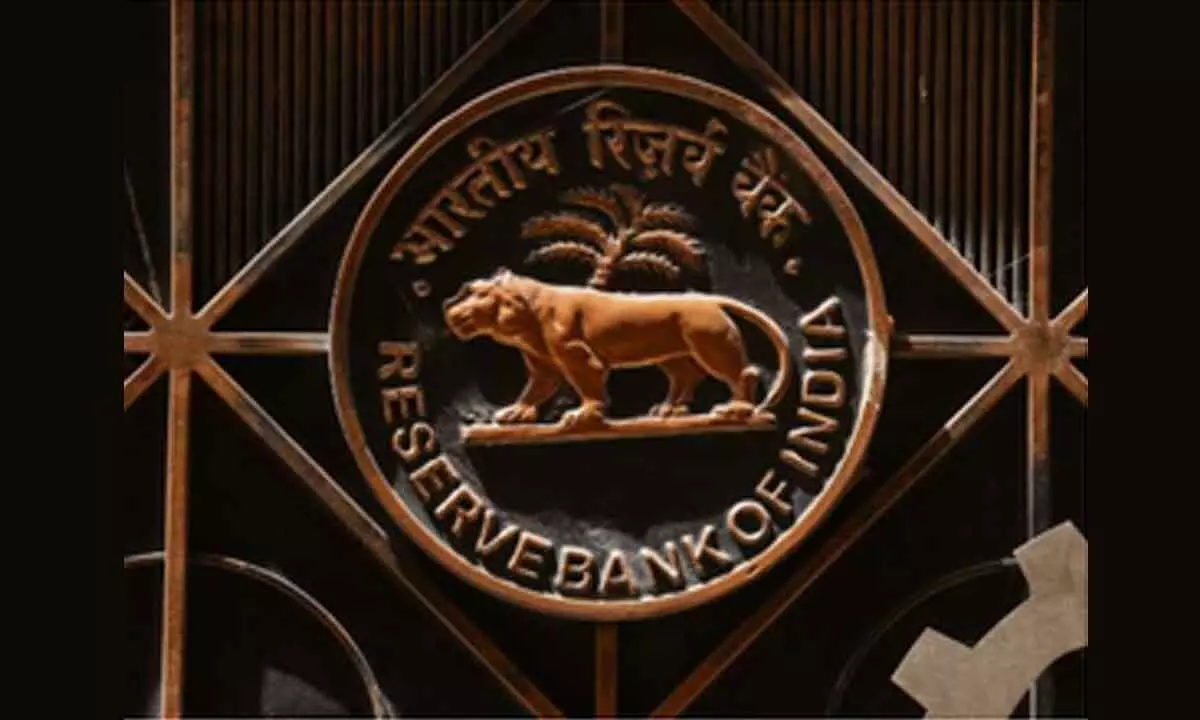Will it be status quo on repo rate for 8th time?
Monetary Policy Committee’s 3-day meeting on June 5-7 underway; Decision today
image for illustrative purpose

RBI needs to use more innovative tools to manage liquidity conundrum as Government cash balances likely to stay out of banking sector with JIT mechanism of fund transfer - Dr Soumya Knnti Ghosh, chief economic advisor at SBI
Mumbai: Monetary Policy Committee (MPC) of RBI, which started its three-day brainstorming meeting to take a call on key policy rates like repo and reverse repo here on Wednesday (June 5), is likely to maintain status quo on the rates when it concludes its meeting today (June 7). Thus, MPC is likely to keep the policy rate unchanged at 6.5 per cent. Bizz Buzz interacted with a few industry experts to know the reason.
Mandar Pitale, Head (Treasury), SBM Bank India, says: “At the backdrop of the fragile outlook for the global economy amidst stalling in the descent of inflation and thus reigniting risks to global financial stability, MPC is expected to hold policy rates for a foreseeable future going ahead with a likelihood of starting rate easing cycle in last quarter of current calendar year. Favourable monsoon impact on the food inflation trajectory will have a major influence on the commencement of the easing cycle.”
MPC is expected to continue with its firm commitment to focus on 4 per cent goal post for CPI securing using appropriate monetary policy tools. During the last few months, RBI has actively managed the banking system liquidity to calibrate monetary conditions despite stable policy rates, he said.
The resilience of GDP growth backed by sustained momentum in domestic demand conditions, is providing the space to defer the start of the easing cycle staying focused on inflation.
Vikrant Mehta, Head (Fixed Income), ITI Mutual Fund, said: “Since the MPC last meeting, geopolitical volatility rose in the first half of April, and though it appears to have subsided post that, underlying tensions continue to simmer.”
Furthermore, global markets now anticipate the Fed to be on a ‘longer than anticipated hold’ as compared to March. Thus, in the current environment, though India’s headline inflation is expected to moderate further, we feel that the RBI is unlikely to make changes to both - policy rate as well as the stance of the policy, he added.
Parijat Agrawal, Head (Fixed Income), Union Mutual Fund, said: “We expect MPC to maintain its ‘withdrawal of accommodation’ stance. The system liquidity is expected to ease after the formation of new government as the new government would resume spending.”
Any rate cut depends upon CPI moving towards 4 per cent on a durable basis and is also contingent on US FOMC decision. Fiscal consolidation, upgrade of S&P’s Indian sovereign rating outlook to positive, inclusion of India in JPM bond index from this June, is positive for the bond markets, he said.
At the backdrop of the fragile outlook for the global economy amidst stalling in the descent of inflation and thus reigniting risks to global financial stability, MPC is expected to hold policy rates for a foreseeable future, with a likelihood of starting rate easing cycle in last quarter of current calendar year. Favourable monsoon impact on the food inflation trajectory will have a major influence on the commencement of the easing cycle. Dr Soumya Knnti Ghosh, chief economic advisor of SBI, says, “RBI needs to use more innovative tools to manage liquidity conundrum as the government’s cash balances are likely to stay out of banking sector with JIT mechanism of fund transfer.”
Weather, geo-politics, AI-led tech disruptions and fragmented trade relations to impact the glide path of central banks’ inflation targeting framework. RBI is among top-3 most efficient regulators in managing inflation, he added.
He added that 7.5 per cent growth looks a reality for FY25 with average inflation at 4.5 per cent. As per a study by CareEdge, the temporal and spatial distribution of the monsoon would be an important factor to monitor. Looking ahead, we anticipate the economic momentum to persist in the next fiscal year as well, he said.

